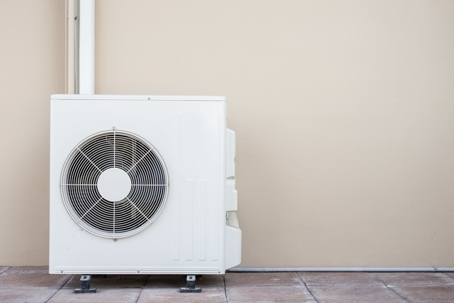Winter is here. After a warm, cozy fall that tricked us into complacency, the last months have brought snow, ice and subzero temperatures. And there is more in the forecast.
For some people, heating systems are like snow tires: they don’t think about them until they really need them – and by then the system may be broken.
If you find yourself in need of a new heating system – or maybe an upgrade – then now is an excellent time to consider modern heat pumps. They are all electric and much more gentle to the environment than traditional fossil fuel heating solutions, and right now you may even be able to get the government to pick up part of the cost.
When the Inflation Reduction Act (IRA) of 2022 passed in August, it included financial incentives for heat pumps both for new construction and for those who are retrofitting older homes. Bloomberg reports that the High-Efficiency Electric Home Rebate Program would provide a rebate of up to $8,000 on the installation of a heat pump and up to $1,750 for a heat pump powered water heater. Also included in the IRA are rebates for those who need to upgrade older electrical panels to accommodate electric heat pumps.
If you’re new to heat pumps, and have questions about what they are and how they work, we’ve tried to answer the most common questions we get below:
What is a heat pump and how does it work?
Without getting too technical, a heat pump is an electrical device that moves heat from one space to the other. This means the same unit can heat your home in the winter and cool it in the summer. Heat pumps are electric, and some can be installed without ductwork. Like all technology, heat pumps have changed significantly over the last decade and some of what you believe you know about them may no longer hold true.
Do heat pumps work when it gets really cold?
Modern heat pumps can function all the way down to -14 degrees Fahrenheit. A properly installed system does not require backup heating, and it is beginning to get more common for new homes to simply have heat pumps. It’s also possible to retrofit an older home with heat pumps.
Are heat pumps less efficient when it’s cold?
It’s true that they lose efficiency as the outside temperature drops, but even close to zero Fahrenheit they can be almost 200 percent efficient. There is heat available for heat pumps to capture at even the sub zero temps!
Are heat pumps only good for new homes?
Heat pumps are like a good suit, they need to be sized to fit properly. They will work great on both newer and older spaces when sized correctly and installed professionally.
Do I need one heat pump or several?
Multi-zone heat pump systems often cost more to operate. The inflation reduction act’s rebate system may mean that you’re better off installing several single zone systems. Northwest Renewables is here to help you figure out the difference in installation cost and operations.
Will I have to always turn off my heat pump?
Heat pumps are most efficient if they are set to maintain a specific temperature and then left alone. Consistently running the heat pump is better than turning it on and off. Slow and steady wins the race.
Will I still need my natural gas boiler or furnace when it’s very cold?
Not, if you install a cold weather heat pump. In the Spokane-area switching back and forth you may accidentally increase the cost of running the heat pump.
What if I want to keep my old furnace just in case?
If you switch to a ductless heat pump, you may be able to keep your old furnace. When you install the heat pump system you should have your furnace serviced, and make sure any needed maintenance is done before you turn the furnace off. Most modern furnaces can safely be turned off, and can easily be turned on again if you do feel like it’s needed.
What about my basement’s pipes? Will they freeze in the winter?
If you have a traditional furnace installed in the basement, and your basement also has exposed pipes and drains, then you may need to take extra steps to keep these pipes from freezing. Foam insulation and small electric heaters can be used in times of extreme weather conditions, but remember that’s just for a couple of days out of the year. The rest of the time your pipes will be fine!

